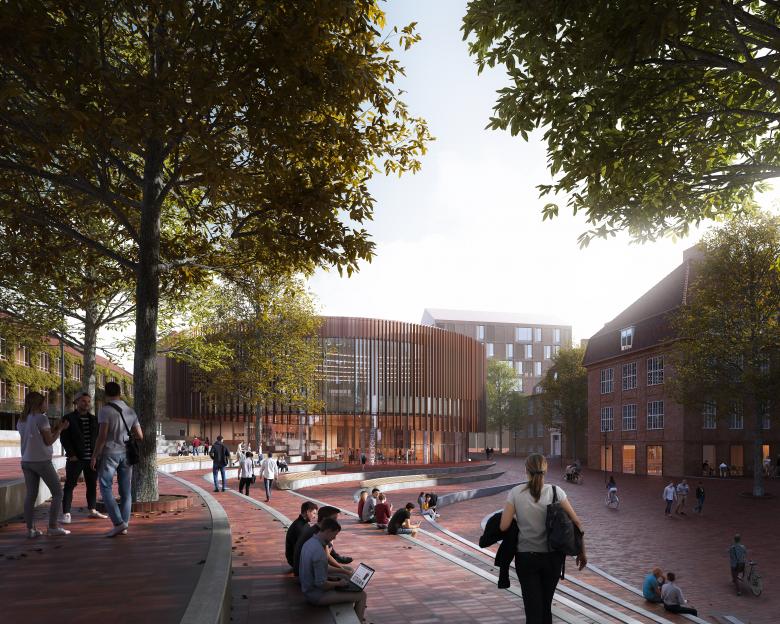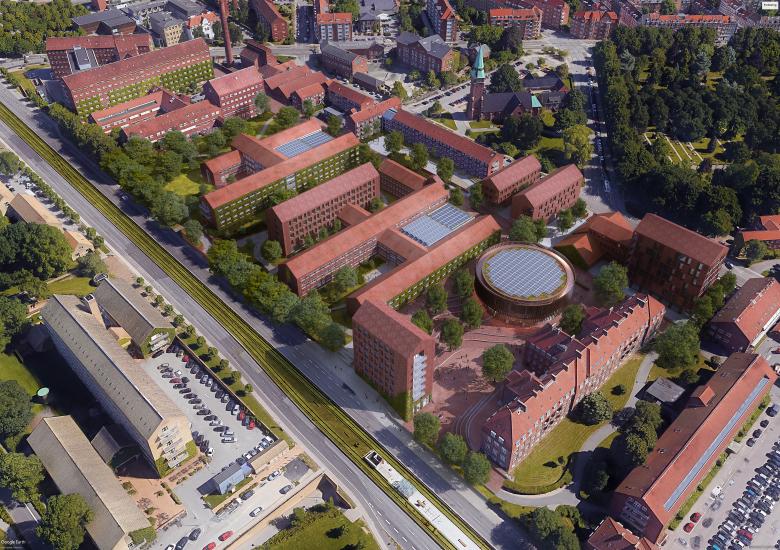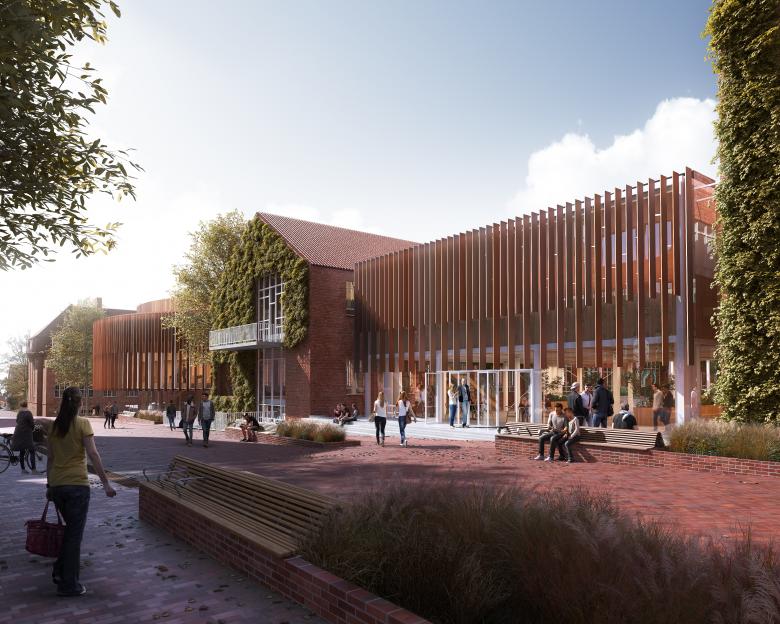Aarhus BSS
Voltar à lista de projetos- Localização
- Universitetsbyen, 8000 Aarhus, Denmark
- Cliente
- FEAS
- Landscape architect
- LYTT
- Entrepreneur
- A. Enggaard
Flexible study environments and sustainable solutions combined with high architectural qualities. These are the key elements in the future Aarhus BSS. The ambition is to create a new landmark for the city of Aarhus and a meeting point in the University City - the upcoming city-integrated campus at Aarhus University. Particularly significant will be the large auditorium, which will be established as a rotunda in glass and aluminium in the central square and thus become a spectacular centre of the campus.
In 2025, Aarhus BSS will move its activities across the city - from its current address to the University City. With the move, students and staff can, among other things, can look forward to a number of new and larger auditoriums – where one of them will be Aarhus University's largest with room for 800 people. Wood will be a common material in the architectural expressions of the new buildings, at the same time as study areas and teaching rooms are designed so that they can be used for several purposes. This applies, for example, to the large auditorium, which can be divided into both two and three smaller auditoriums and used for both lectures and external events. A flexibility that is also entered in the teaching rooms, which in all buildings become a well-integrated part of the study environments.
With its location in the middle of the University City and its 37,000 square meters, Aarhus BSS and a large and important part of Aarhus University's overall physical development. At the same time, the new buildings will be closer to the faculty's other activities in the University Park in Aarhus. With its architectural expression and quality, it manages to create and clear coherence across the University Park and the University City. That is why it is moving towards another simply unified and integrated campus in Aarhus, where the synergies strengthen between research environments, study environments, teaching, and collaboration with the university's external stakeholders.
Last but not least, the sustainable ambitions are high for the future Aarhus BSS. Both active and passive sustainable solutions have therefore been entered from the start of the project, which aims for a DGNB Gold certification - on a par with the specification that the University City as an urban area has achieved.


